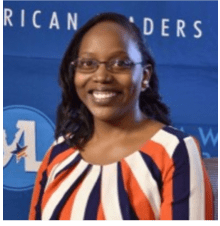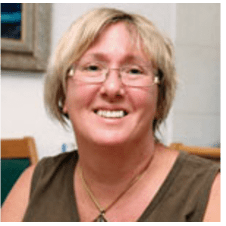By Mellissa Bortz, Ph.D., Assistant Professor, Department of Communication Sciences and Disorders

In the fall of 2022, Tinashe Nhokwara, MSc in Audiology, Shahdeedah Aufe, and I ran a six- week Global Online Learning Exchange (GOLE) course between 20 St John’s undergraduates majoring in Speech, Language, and Pathology and 14 students majoring in Hearing and Speech Language Therapy from the University of Zimbabwe in Harare.

The overarching aims of the exchange were for students to become familiar with cultural responsiveness, methods of language assessment, and devising culturally and linguistically appropriate test items.
The students learned a great deal about each other posting discussions about various topics such as energy power needs, food, and weekends. Each week, they were required to complete a reflection journal as well as identify culturally and linguistically diverse items including different vocabulary, morphology, phonology, and metaphorical language. They learned that English is an Indo-European language with subject-verb-object sentence formation. Shona is a Bantu agglutinating tonal language where different meanings of the same word are represented by changing the intonation of the production.
The reflection journal was extremely useful for students to exchange ideas about how to treat potential culturally and linguistically diverse clients. One student commented, “I chose to take part in the discussions of this course, as I believe that a better understanding of cultural linguistics yields a competent speech and language therapist. It is safe to say that studying language (linguistics) and culture will help me in my interactions with patients as I have a better understanding of their language and culture, and I will be able to efficiently respect them according to how their culture requires.”

Students were required to complete two assignments, one individual and one group, identifying culturally and linguistically inappropriate items and replacing them with alternative items that they had learned during discussions, for example, brand names of cereal or vacuum cleaners for rural Zimbabwean populations. University of Zimbabwe students identified alternative games instead of “patty cake” commonly played by toddlers in the U.S. and animals such as penguins which are not found in a land locked country such as Zimbabwe.
The course was originally planned to take place using Canvas and WhatsApp. St. John’s students had access to both platforms while University of Zimbabwe students used WhatsApp exclusively. An ongoing challenge in this course was the seven-hour time difference. The main reason was that students at the University of Zimbabwe do not have access to laptops and cannot operate free Canvas on Smartphones, and their Wi-Fi is sporadic and very expensive.

These challenges, however, did not prevent robust and fascinating discussions taking place such as around the Zimbabwean staple food sadsa “corn meal.”
The positives, challenges, and recommendations for future iterations of GOLE were discussed during debriefing sessions. St John’s students reported that they learned a lot about Zimbabwe, a country that they had previously not known much about. The technology and lack of synchronous classes were challenging for them. Ms. Nhokwara made a very powerful comment stating that Canvas was the first time that she had “seen what a functional e-learning system looked like.” The University of Zimbabwe students were grateful that the course was available on WhatsApp as it made it accessible for them. They expressed enthusiasm for all that they had learned and want future classes of this type to further their knowledge.
In order to achieve this goal, an unintended positive outcome of this course is that the University of Zimbabwe students will become founding members of the African Connections Speech Language Therapy student group. This request was facilitated by members of the teaching team approaching the African Connections Speech Language Therapy group. This group consists of over 300 Speech-Language Therapists working or collaborating in Africa.
